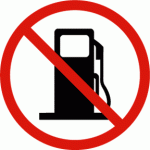
The government of President Carlos Alvarado launched last month of February a plan to eliminate the use of fossil fuels by 2050 with which the Central American nation aspires to be among the first in the world in suppressing carbon emissions.
It is a 10-point road map that seeks to generate a development model based on the reduction of carbon emissions in the atmosphere, digitization, and decentralization in energy production.
Among the highlights of the initiative, officially called the National Decarbonization Plan, includes: transport and sustainable mobility, energy, sustainable construction and industry, integral waste management, agriculture, and land use change.
If fulfilled, Costa Rica would achieve “zero net emissions” in 31 years, which means that it would not emit more carbon than it can compensate through the conservation and planting of its forests. A goal that involves not only the government and the private sector but rather the whole of society.

Today, Costa Rica took steps to go ahead of many countries around the world in terms of sustainability. President Carlos Alvarado announced they would be banning fossil-based fuels altogether. This would make Costa Rica the first country in the world to completely decarbonize.
Getting rid of fossil fuels is a big idea coming from a small country. This is an idea that’s starting to gain international support with the rise of new technologies As unlikely as going carbon-free in today’s modern world might seem, Costa Rica already derives 99% of its energy from renewable sources. Their biggest hurdle will be in the transportation industry, where it is very little in the way of development in that sector and demand for cars keeps growing although some car companies are already offering models that are complete fossil fuel free.
Luckily, plans are already underway to help address the issues at a cultural level. Many Costa Ricans already appreciate the benefits of renewable energy. Many citizen initiative and non-profit organizations are helping to push the decarbonization efforts. President Carlos Alvarado has set a goal of decarbonizing by 2021, which will mark 200 years of independence for Costa Rica.
The goal is aggressive and may not be entirely feasible (especially with Costa Rica’s current financial issues) but the nation has stepped up to the efforts to meet the challenge. Costa Rica has been operating on a deficit since 2009. 22% of Costa Rica’s revenue comes from taxing the auto industry, and a large portion of that goes to nature protection and other conservation projects. This could result in a heavy financial loss for their already strained financial situation, but rethinking how they get their money could resolve their issues over time.

With fewer carbon emissions, money can be saved in the form of reduced health care costs. Another option, which will no doubt has to be adopted at some point, is changing what is taxed instead. Like a carbon-tax itself, that might help reach the goal while at the same time resolve their current financial situation as well. Whether Costa Rica achieves its decarbonization goals on time or not, their efforts make a statement to the rest of the world. If a small country can make a huge difference to the world despite their size and lack of development, bigger countries can follow their example. Globally, fossil fuels are the biggest threat to climate change, and a path to getting rid of them is one that all countries should follow.


